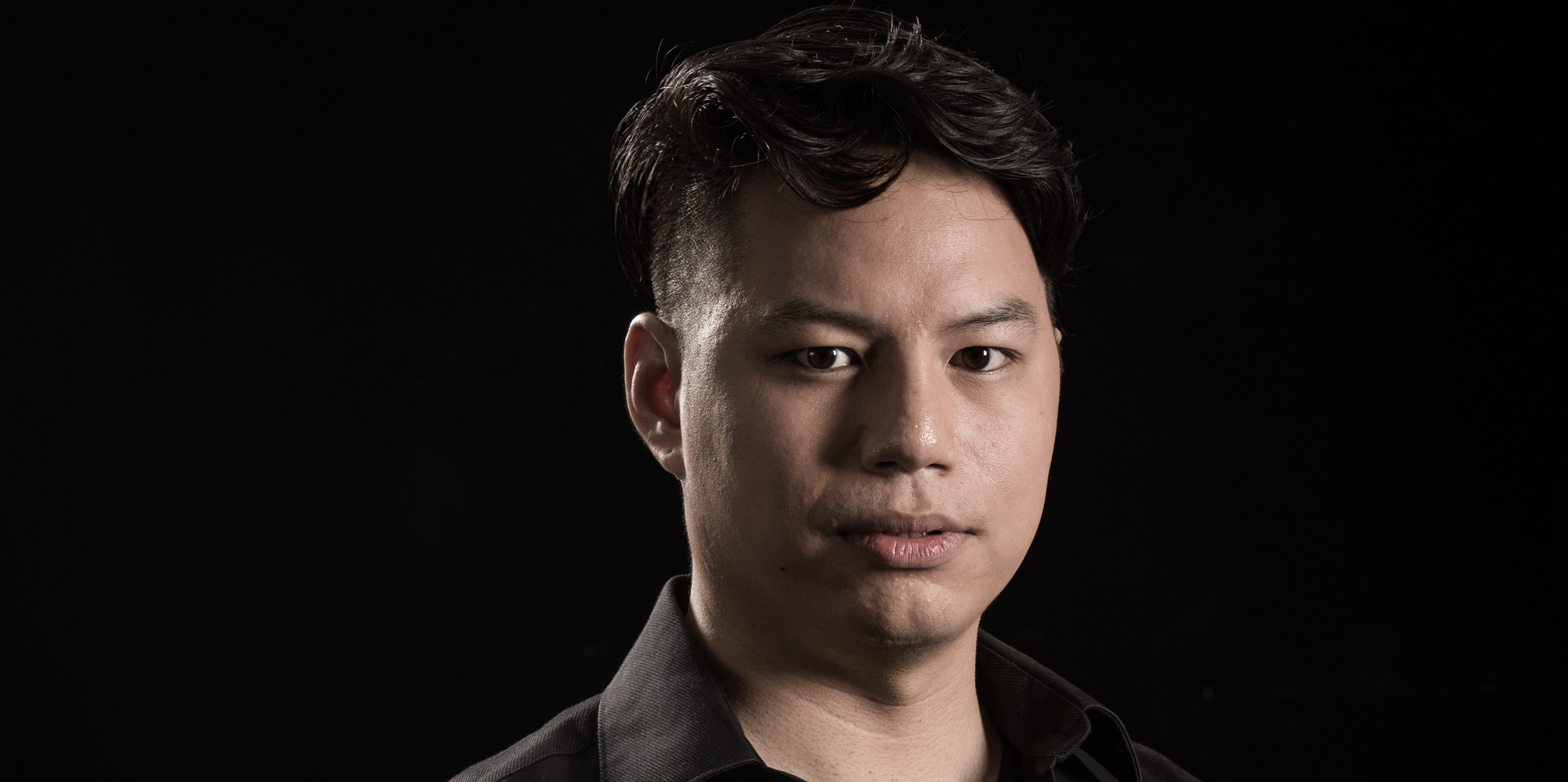
A native of New York City, Henrik has experienced the gamut of theatre roles – having been backstage crew while in Queens College in the City University of New York, as a technician working the light boards, and directing site-specific works in New Orleans (a passion they discovered while attending La MaMa’s symposium in Italy).
A chance encounter with Singaporean artists at La MaMa’s symposium led them to question the Asian American-centric approach, and limits, of their practice. From there, it has been a 9,521-mile journey to Singapore – one that will be a new jumping-off point when Henrik graduates later this year.
In their time here, Henrik has facilitated Speak Cryptic’s The Tribe at SIFA O.P.E.N. 2016, content creating and performing in Alamat Bahru with Wright Assembly, and performing in Pretty Butch at M1 Singapore Fringe Festival 2017.
Henrik gravitates towards performing work that provides hope, is healing, or encourages positive, proactive change.
Q: From New York and New Orleans to Singapore. Why cross the oceans for actor training?
I chose to come to ITI because I was very interested in experiencing the practice of different theatre conventions. Having grown up in the US, I had a very American lens through which I experienced theatre-making and consuming.
As a director, I began to question how I approached it. I felt my methodology and approach was severely limited. When I had the opportunity to go to the La MaMa directors’ symposium in Umbria, Italy in 2012, I met four Singapore-based artists – Li Xie, Elizabeth De Roza, Irfan Kasban and Danny Yeo. I was very interested in how they approached the work they were doing at La MaMa Umbria, and Li Xie mentioned about ITI and its core curriculum. Although these artists did not train at ITI, I was very interested in how such a programme came to be in Singapore, and its relationship to Singapore’s theatre community as a whole.
Q: Do you recall your first day here – what were some of your thoughts and emotions then?
On my first day at ITI, I was extremely excited and very much in awe. After hearing Sasi and the other teachers, administration and students speak, I already felt how vast, yet specific, my journey was to be at ITI.
Q: What is the everyday reality here like?
Quite often, contradictory. It is hard and easy, gruelling and blissful. Honestly, as all experiences are rooted in the personal, ITI’s wealth and generosity is only as immense as I was prepared to and able to receive.
Pragmatism will only get you so far, while idealism will get you lost, and together, you may find yourself somewhere interesting.
Q: What is something unforgettable to take away from the studios?
They are so innumerable, but the common links are in relation to my [traditional form] master-teachers, teachers and classmates; their lenses that shape their methodology towards training for and making theatre, and their perspective towards life.
Q: What does ITI’s actor training do for you?
It has removed the self-imposed ceiling with regards to my ability as an actor. It has created a wide foundation to support the journey towards creating many different types of performance works.
Q: As you approach graduation year, how has your almost-three-years experience with ITI changed your initial expectations (remember Day 1 in school)?
I remember saying on my first day at ITI that being able to take this journey was a dream and it still is; because as lofty as my expectations were, they were met in ways I couldn’t anticipate. And for the ones that were not met, they were never ITI’s place to meet them – those are to be laid upon myself.
Q: What are your post-graduation plans?
I look forward to staying in Singapore, granted if I get a work visa. In short, I would like to just continue doing the work, but it is in my plans to bridge the Singapore and New York City theatre communities.
Q: What would you say to a fresh, new student or someone thinking of joining ITI?
“Join.” The process can only happen when you choose to start. Everything will figure itself out and ITI will support you in that.
Q: Any words of reflection or gratitude to anyone?
There are too many special and long thanks for me to list.
To poorly sum it up, I am grateful to have experienced such great fortune and opportunity at ITI, being so welcomed in the Singapore theatre community, having such strong support from my family in the US and the family I have serendipitously found here in Singapore.

Photos by Bernie Ng